Russ Moses, Delaware band, Six Nations of the Grand River Territory.
Introduced by John Moses, Six Nations of the Grand River Territory.
To help raise awareness of the continuing horrendous disclosures about residential schools in Canada, Beyond the Spectacle is sharing the story of Russ Moses (Delaware Band, Six Nations of the Grand River Territory). We are grateful to John Moses, his son, who approached us with the suggestion that we share these materials, and who has written the brief introduction below. Russ Moses’s account of his time at the Mohawk Institute in Brantford, Ontario, is harrowing in its recollection of all the ways in which “we were not treated as human beings.” Asked by the Canadian Government’s Indian Affairs Branch to “candidly” share his thoughts regarding residential schools, Moses reflected that “when I was asked to do this paper I had some misgivings, for if I were to be honest, I must tell of things as they were and really this is not my story, but yours.”
The Institute is the oldest residential school in Canada and was established in 1831, while Ontario was still a British colony known as Upper Canada. As Professor David Stirrup, our PI, notes, “This was British colonial policy, and it laid the foundations for all that was to come.” Both Canada and Britain need to acknowledge this and “take that history – and the ongoing obligations it establishes – seriously.”[1]
My late father Russ Moses (Delaware band, Six Nations of the Grand River Territory, 1932-2013) attended the Mohawk Institute Indian Residential School in Brantford, Ontario, under exceptionally severe wartime and immediate post-war conditions from 1942 until 1947. During wartime, the Mohawk Institute had been converted to an agricultural forced labour camp to help meet Canadian wartime food production needs on the home front. The text of Russ’s memoir, which he wrote in 1965, and the covering memo requesting its production, are self-explanatory. Russ wrote his memoir in 1965, the year in which he left the Canadian military following 15 years of service, including Korean War duty in the Royal Canadian Navy from 1950 to 1955, to begin new work with Canada’s civilian public service.
– John Moses
PLEASE NOTE: this account is largely made up of documents reproduced as images, which may take a while to download. Sincere apologies for any inconvenience.
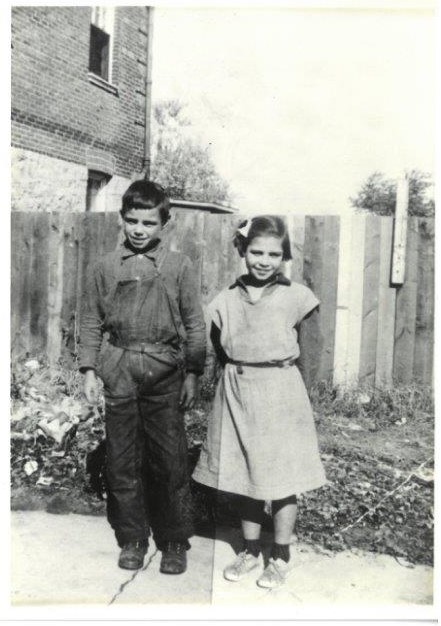
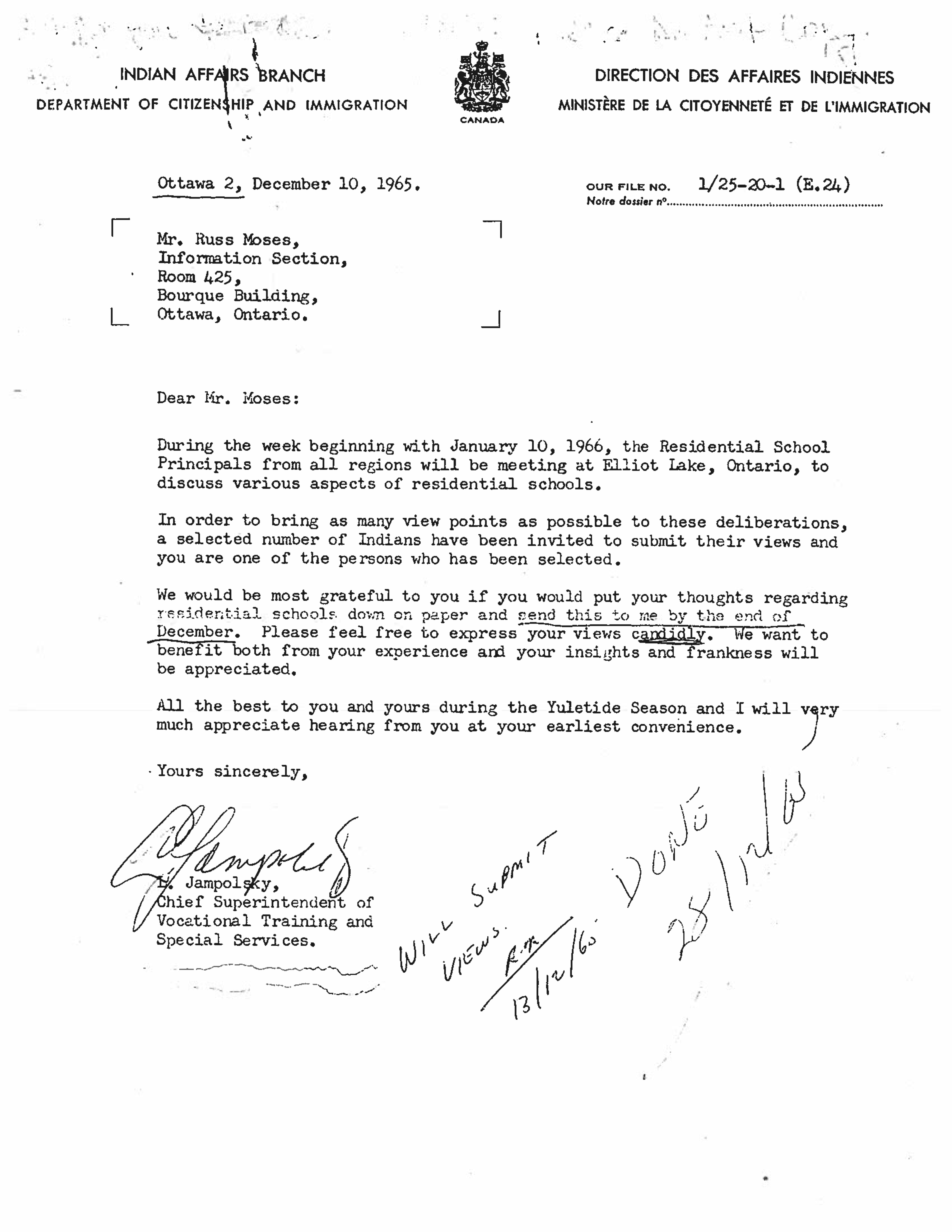
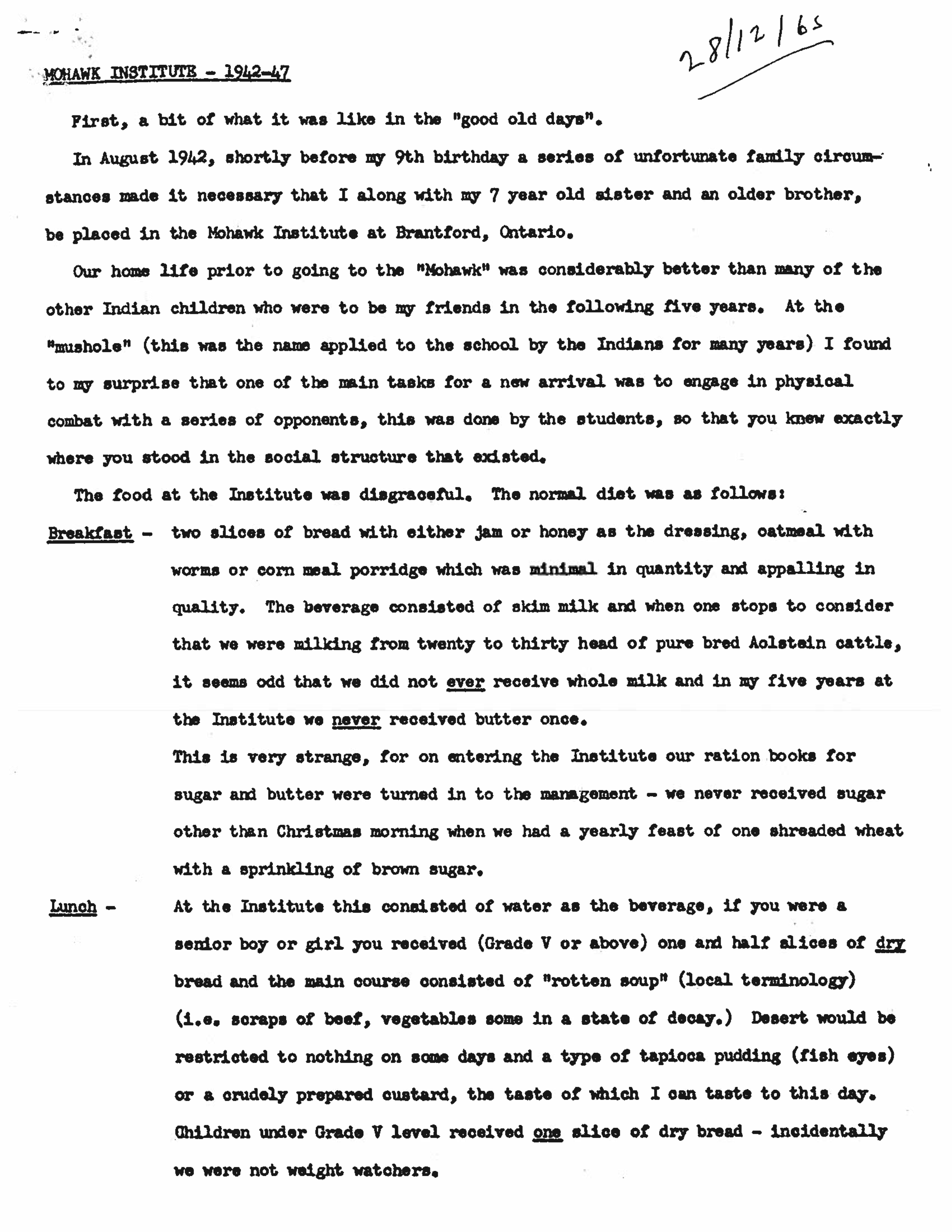
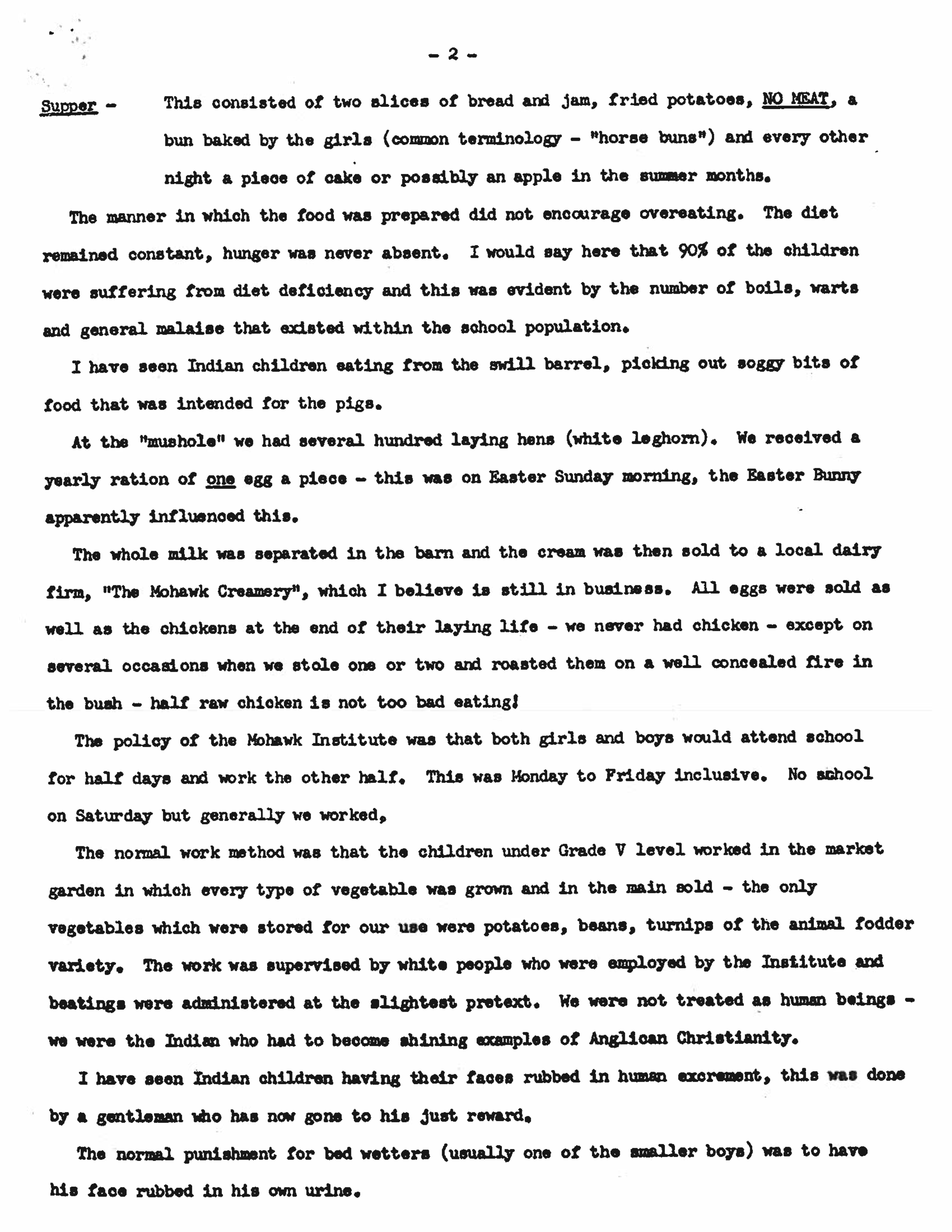
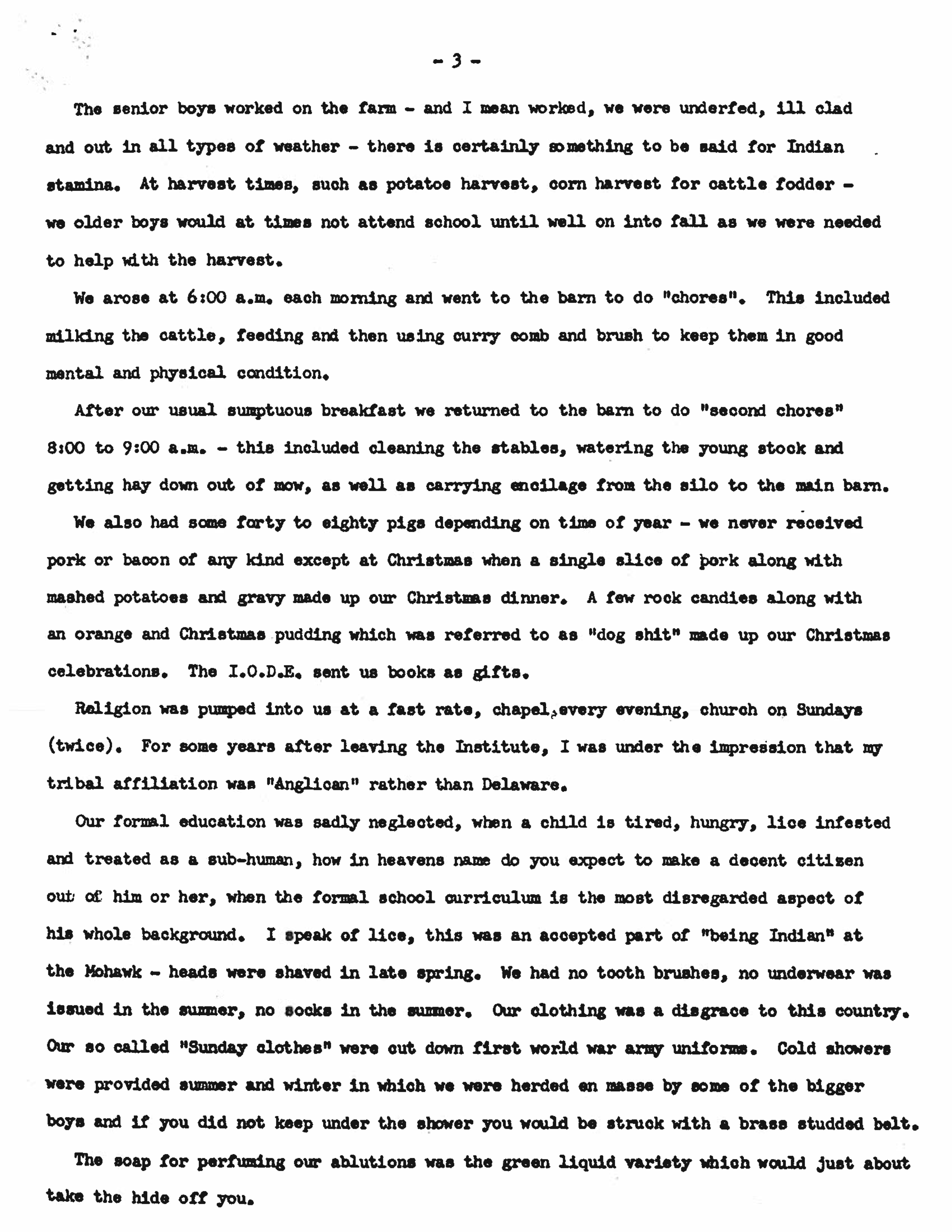
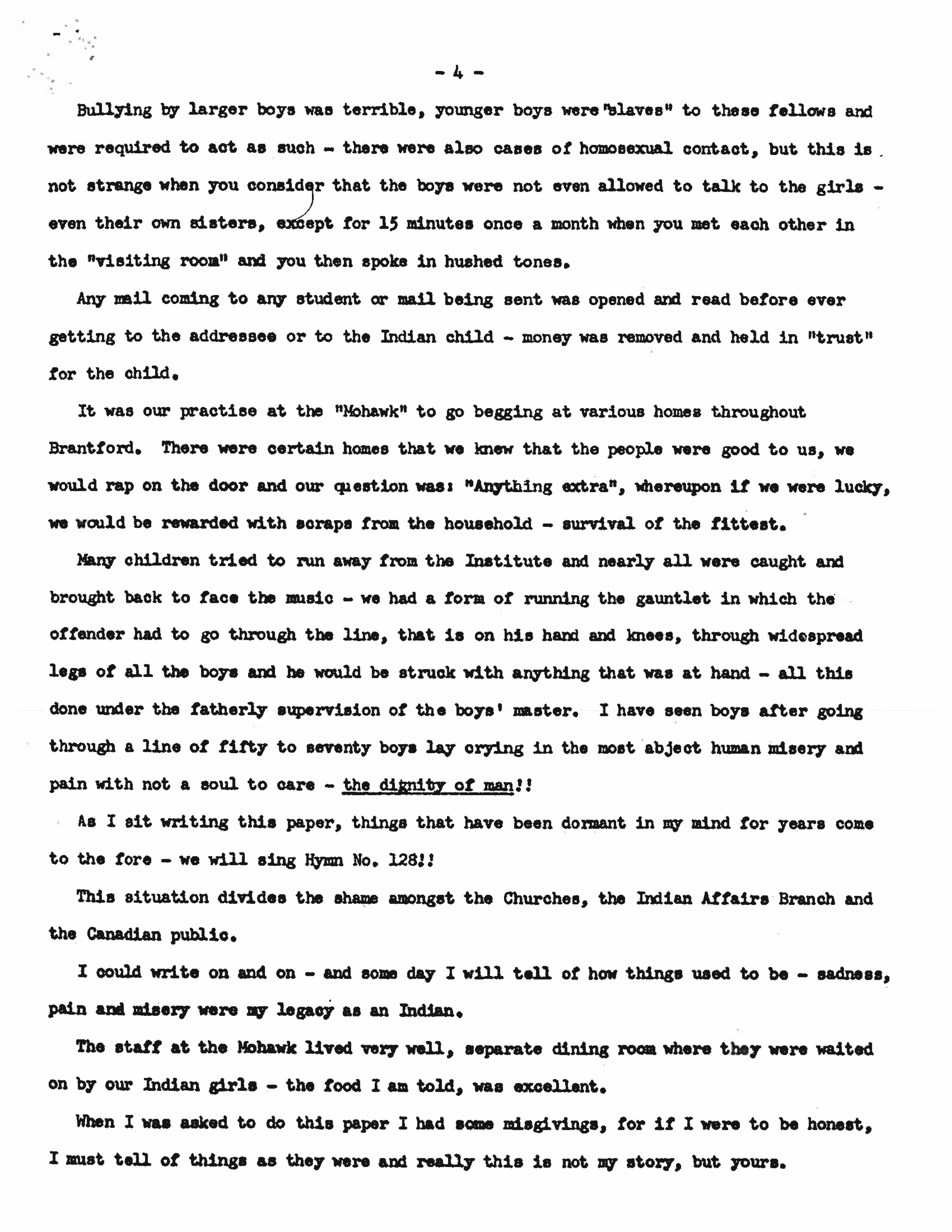
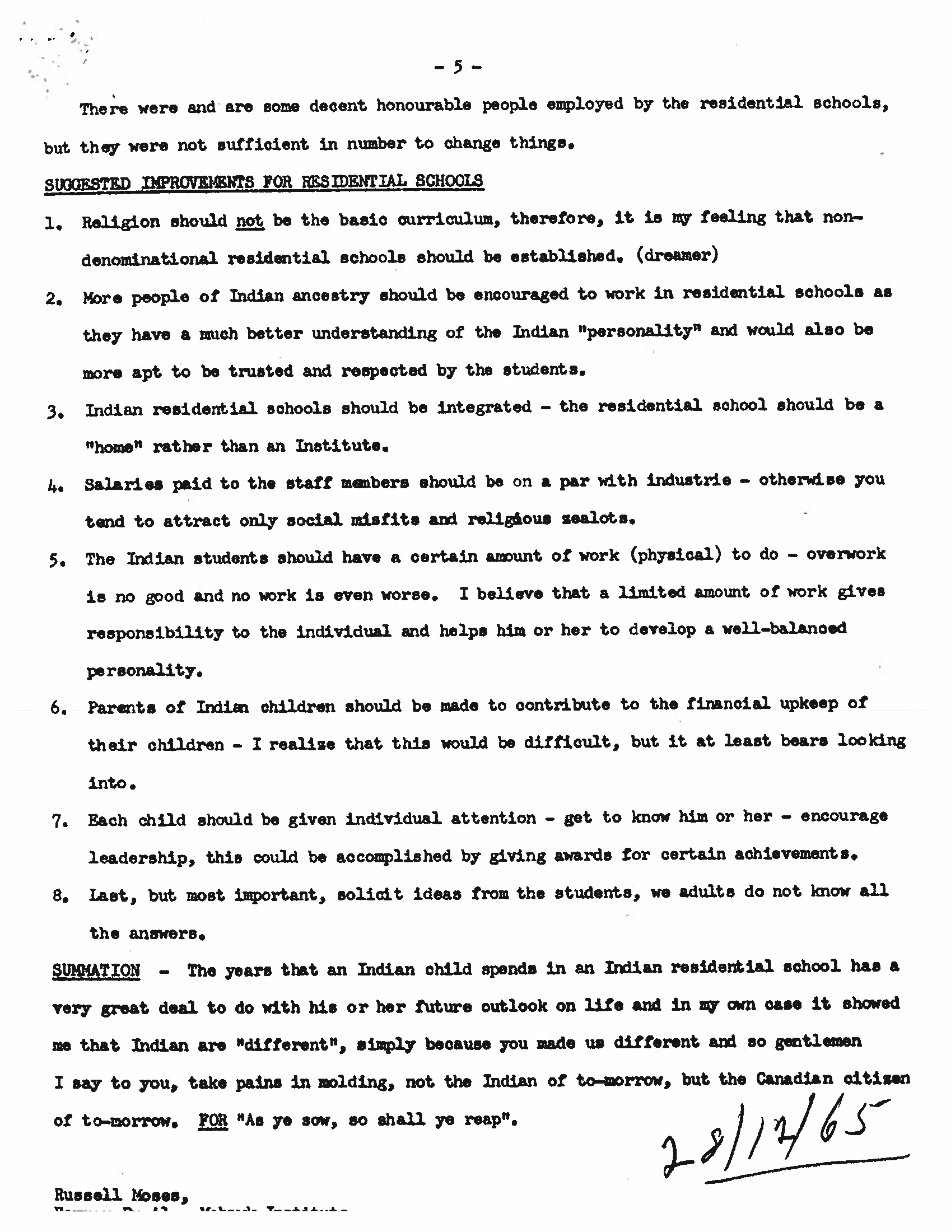

[1] David Stirrup, “The toxic legacy of the British empire in Canada’s residential schools,” Letters, The Guardian, 2 July 2021, https://www.theguardian.com/world/2021/jul/02/the-toxic-legacy-of-the-british-empire-in-canadas-residential-schools.
